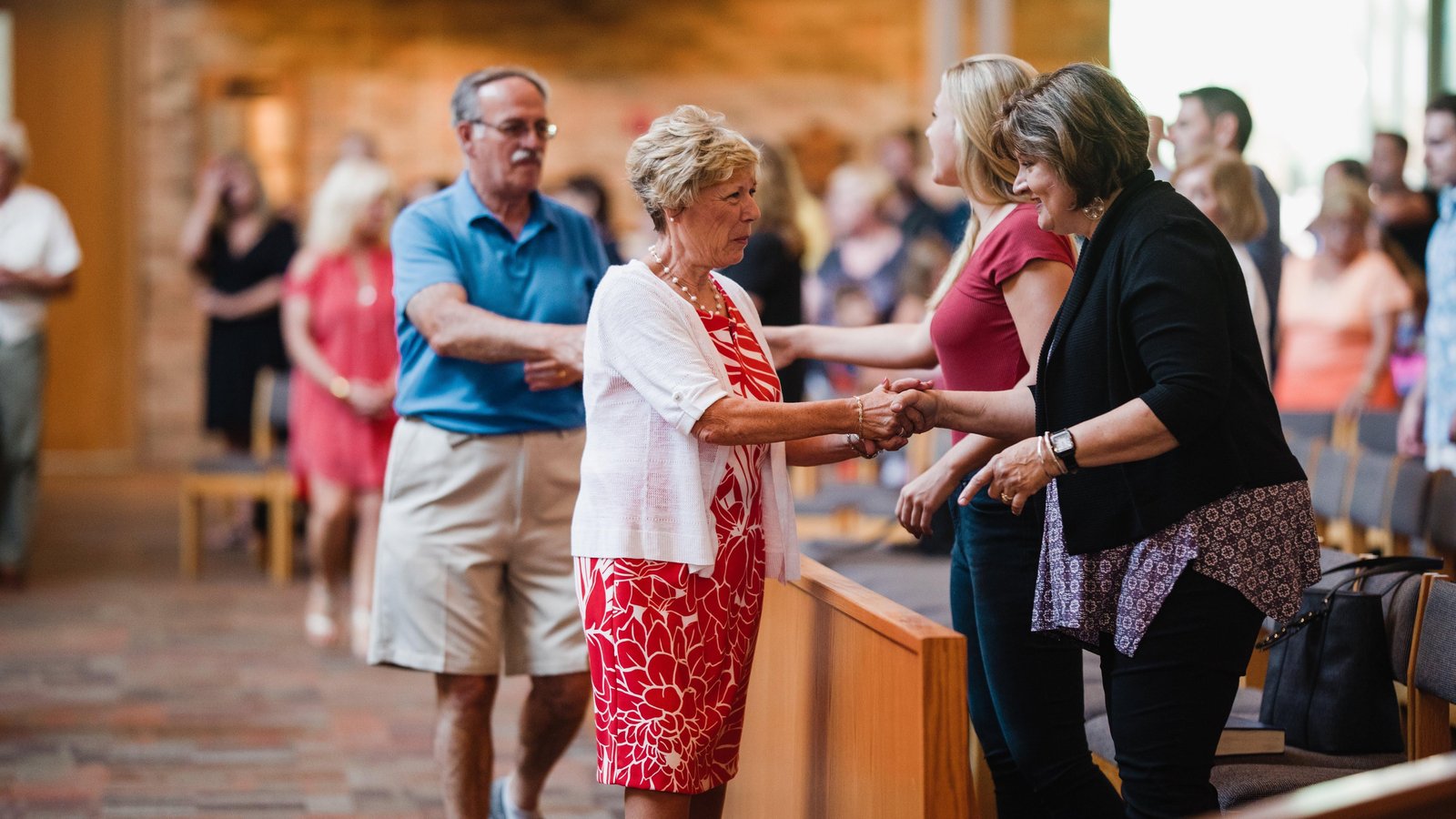
Let love be sincere; hate what is evil, hold on to what is good;
love one another with mutual affection; anticipate one another in showing honor.
Do not grow slack in zeal, be fervent in spirit, serve the Lord.
Rejoice in hope, endure in affliction, persevere in prayer.
Contribute to the needs of the holy ones, exercise hospitality.
(Romans 12:9-13)
In the service industry, the terms “customer service” and “hospitality” are often mentioned in the same context. Admittedly, “customer service” is not the right phrase to use in the Church. The Church does not serve customers; the Church is the Body of Christ. However, we do want to be organized and responsive while loving people well and helping them along the path of discipleship. The ministry of hospitality aims to do just that. While customer service assists people with a specific outcome, hospitality is broader and more focused on the total experience. It’s not so much what you can do for them; rather it is how you make them feel. Hospitality is a crucial ingredient in the life of every parish. As the local presence of the universal Church, every Catholic parish “exists in order to evangelize” (Evangelii Nuntiandii, 14). This means that everything we do as the clergy, parish staff or lay ministers must ultimately work toward or flow from this purpose.
Parish staff can work hard on a ministry or a program while taking all the steps necessary to ensure a high degree of hospitality. But intent and execution don’t always align. It is crucial to take the time to gather information from the individuals we serve. Feedback surveys are a great way to assess engagement and experience — a holistic look at ministries and services from the individual’s perspective.
As a follow-up to the Missing Generation Conference, the Offices of Engagement and Family Ministry have collaborated to develop a Post-Marriage Survey to help parishes assess their hospitality quality and effectiveness in marriage preparation. The survey intends to foster a spirit of continuous improvement and help parishes see themselves through the eyes of a young adult — a parishioner, a newcomer, or an individual returning to the Church. The survey spans the whole marriage process beginning from the first parish inquiry to the wedding day itself. During this entire process, there are many hospitality touchpoints: the website, the intake forms, email correspondence, the receptionist, the deacon/priest, mentor couples, the formation process, wedding day coordinators, etc. Each of these touchpoints plays an important role in the couples' experience and could either inspire them to come back or turn them away.
The survey template is in Microsoft Word format making it easy to cut/paste the text and adapt the survey as appropriate. Parishes are encouraged to utilize whatever format they wish (paper survey, Survey Monkey, Google form, etc.) to collect and analyze the data. The survey results are for parish use — to affirm their strengths and identify areas that need improvement. The survey can also be adapted for other ministries such as OCIA, Infant Baptism Preparation and other programs and events. The following additional resources from the Hospitality Ministry Resources web page may also be helpful in growing your hospitality ministry and gauging your hospitality quality:
Hospitality Handbook, which includes the following sections
Creating a Culture of Hospitality (Internal Culture, First Point of Contact, Christmas and Easter, Weddings, Baptisms, Funerals, First Communions, Confirmations, Festivals and Picnics and more!)
Connecting and Following Up with Newcomers
Parish Assessment Tool
Ten Commandments of Hospitality Poster in English and Spanish
Hospitality within the Liturgical Team Online Training (From the Office of Sacred Worship)
In business, great customer service and hospitality can be powerful growth engines. The same is true for ministry; however, our motivation is different. Jesus makes charity the new commandment, and through our love for one another, we imitate the love of Jesus, which we have received (CCC 1823). The love we exercise for others will organically lead to greater engagement, and greater encounters with Christ and his Church and thereby help us to carry out our mission to evangelize.







